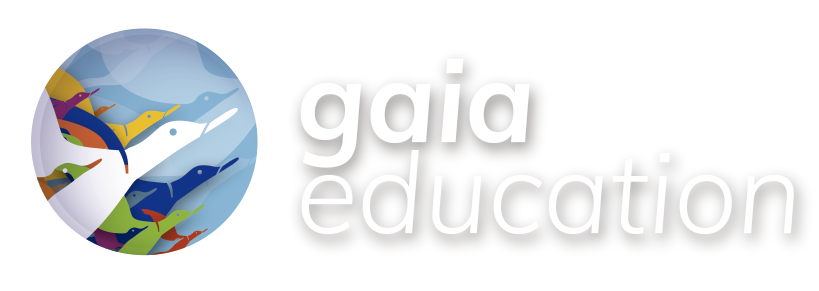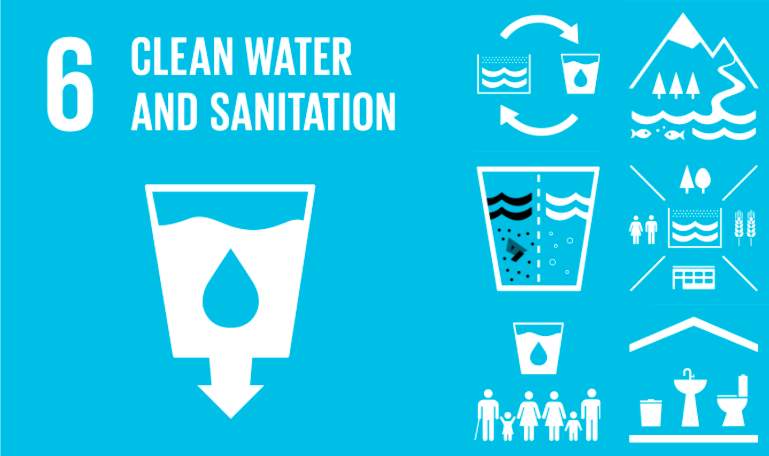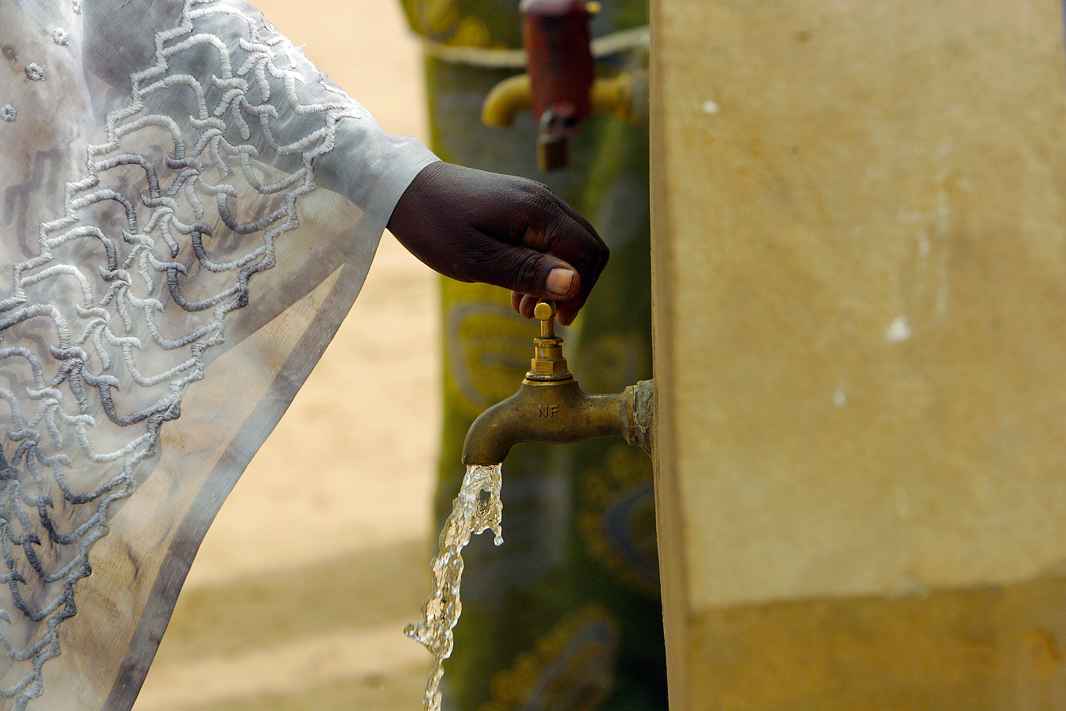Programme Overview
Type: eLearning
Start Date: 1st Semester of 2024
Study Time: 3 hours/ week
Facilitation: Self-pacing
Certificate: Yes (extra fee, please ask UNITAR at Daniel.NAZAROV@unitar.org)
Certified by:


Water is essential for life and for sustainable development. Increasing human population, the impacts of climate change and unsustainable growth all place pressures on the world’s precious freshwater resources. Managing water well is essential for the international community to deliver the promise of the 2030 Agenda for Sustainable Development. Without this, most of the Sustainable Development Goals cannot be achieved. Every drop matters.
The course presented by the University of Strathclyde, Gaia Education and UNITAR contributes to the International Decade (2018–2028) for Action – Water for Sustainable Development, and is supported by the Scottish Government.
This Water Action Decade will focus on the sustainable development and integrated management of water resources and sanitation to achieve social, economic and environmental objectives and to implement and promote related programmes and projects, as well as to advance cooperation and partnership at all levels to achieve internationally agreed water-related goals and targets, including those contained in the 2030 Agenda for Sustainable Development.
Modules
Module 1: Global Water Challenges
This module covers a number of global water challenges, including human development needs, water security, water quality, water availability, root causes of water scarcity, water distribution and equity, and the interactions between climate change and water. Case studies are included to assist the understanding of these topics.
Learning outcomes:
On completion of this module participants are expected to be able to:
- summarise what is meant by Integrated Water Resource Management
- identify challenges for water security
- explain the key components of water quality
- examine the water-related consequences of climate change
- describe the differences in, and impacts of, water distribution
Module 2: Water and Wastewater Treatment Technologies
Water engineers, hydrologists and hydrogeologists have a responsibility to develop a working knowledge of current technologies and to stay abreast of the most suitable techniques for treatment and delivery of safe water supplies. Innovative water technology transfer between countries is essential to achieve internationally agreed water-related goals and targets, including those contained in the 2030 Agenda for Sustainable Development.
Learning outcomes
On completion of this module participants are expected to be able to:
- explain the concept of different levels of water resilience and its links to sustainable communities
- select the most appropriate technology/ technique and describe how it can be used to address the water challenges of their region
- compare and contrast the case studies and draw the lessons learnt
Module 3: Water Governance
A good governance regime requires the active collaboration and participation of a variety of disciplines, organisations and stakeholders who focus their energies on a defined collective topic – in this case protection of water resources. The collaborative group must engage through regular information exchange, interdisciplinary coordination and cooperation, clearly defined and communicated control mechanisms, timely intervention and frameworks for conflict resolution. Contrary to common belief that governance relates only to legal structures, effective governance derives from a synergy of different elements: organisational/managerial capacities, financial capacities, legal capacities, institutional capacities and social capacities. Integrated water resource management can contribute strongly to building both an effective water governance regime and a robust water management mechanism.
Learning outcomes
On completion of this module participants are expected to be able to:
- summarise the special challenges inherent in transboundary water management
- differentiate between absolute territorial sovereignty/integrity and limited territorial sovereignty and the challenges they pose
- explain the science-policy-stakeholder interface in water management in their area and how it can be improved
Module 4: The Water-Energy-Food Nexus
International organisations have stressed that access to safe water, a secure food source and sufficient energy are fundamental human needs. Nearly one billion people lack access to safe water, 2.5 billion lack access to sustainable sanitation, one billion suffer from hunger, and 2.5 billion lack access to modern forms of energy. As the global population grows from the current seven billion to an estimated eight billion by 2030 and 9-10 billion by 2050, this ‘bottom billion’ will doubtless grow in number and suffer even more hardships unless the current systems become more inclusive and sustainable. Because each of these sectors is usually managed and regulated individually and separately from the others, a holistic approach has been elusive. This module will discuss the inter-relationships between pairs of the sectors to illustrate these challenges.
Learning outcomes
On completion of this module participants are expected to be able to:
- identify opportunities for sustainability using a nexus approach
- explain the importance of considering water more broadly across the environment, society and the economy
- detail, using the case studies, how a region is adopting a water energy food nexus approach
Methodology
Learning activities are based on UNITAR‘s sound adult learning pedagogical principles. They are distributed in such a way as to ensure the achievement of the learning objectives in a flexible manner: learning materials can indeed be consulted in a non-linear way so as to provide participants with a high degree of flexibility in choosing the learning pace that is most suitable to them. Thus, participants are responsible for their own learning throughout the course. Each module aims to deepen the participant’s skills and understanding as well as provide him/her with the opportunity to network and dialogue with other participants, sharing country specific experiences and good practice in sustainability issues related to water resources management.
Learning materials include the following elements:
- basic reading materials to support the understanding of the basic concepts and principles of the modules’ subject matter
- advanced reading materials (optional) for participants willing to learn more about the topic
- external links to relevant publications, reports and websites
- glossaries of terms and acronyms as supportive learning tools
- a community discussion board (forum) will allow participants to discuss topics initiated by the course participants and to post questions, comments or new discussions.
Learning Time
The learning time is estimated to be about five hours per week. This includes study time (about three hours/week) and participation in prescribed activities (about two hours/week). Time dedicated to quizzes and other activities is not taken into account in this estimation. The course lasts for five weeks and will close after that time.
Course Completion and Certification
Successful completion of the course requires participants to successfully respond to all quizzes. A Certificate of Completion will be issued to participants who complete all quizzes and make payment of $100 USD to UNITAR.
Assessment Activities
The assessment activities are organised into four self-correcting quizzes which aim at evaluating participants’ comprehension of the course content.
Target Audience
The course is open to:
- Integrated Water Resource Managers
- Community Health and Sanitation Workers
- International Development Consultants
- Water Quality and Treatment Managers
- Poverty Alleviation Activists
- Developing Countries Agricultural Engineers
- SDG Training Multipliers
- Hydrology Students and Workers
- Community Leaders
- Urban Water Developers
- Climate Justice Policy Makers
- Waste Water Treatment Workers
- And everyone interested in Local Water Solutions for Global Challenges
More Information
The programme will start on 1st Semester of 2024 for a duration of five weeks. The programme will equip participants with the understanding and abilities to become more confident within this crucial field.
This is a free MOOC. The only cost is of $100 USD if you wish to receive a Certificate of Completion, issued by UNITAR.
If you have any questions do not hesitate to contact us at elearning@gaiaeducation.org.
The content of the modules is based on original materials developed for Hydrogeology and Water Resources Education at the University of Strathclyde and is supported by students who take part in the Vertically Integrated Project (VIP) Water, Sanitation and International Development.
This course is presented as a free MOOC by



